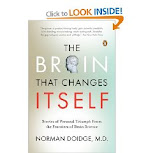I have been meaning to write something about this for a long time. The idea came to me a while back when I was watching Veronica Mars and in one episode the kids at school were tested in the IT lab for search competencies. The challenge was who could find the information pitched by the teacher the fastest. The information was the name of a local basketball player who has surprisingly saved the day in a match by scoring a final 4 pointer.
Eventually, Veronica Mars wins simply by looking up the names of the players and then cross referencing the lower scoring ones with the word 'surprising'.
This to me is a perfect example of how search actually works. I have previously said that the fastest way to find something on google is to simply "ask" like you were asking a normal person. The reason behind this is that most people do not take a scientific approach to searching. They behave naturally towards online and have no search strategies, like inputing keywords and tags or using punctuation. For them conversations online are much like conversations offline, they rely on simple speech patterns and simple thinking patterns and when they write they write like they were talking about it. So, the largest number of indexed information sounds like that. In the case above people would not mostly be interested in the scores of a game but rather in the human story of an underdog who suprises everyone.
So, search is always about the simplest and most human context. Find what is the key, common story around a term and search it just like that, like you were talking about it. Generally, it gives the best results.
communication is essential to business making and it involves more than the ability to name your product, write a tag line or a press release. It's an intricate, rational and scalable effort and, let's face it, not anyone can do it.
7/05/2009
Subscribe to:
Post Comments (Atom)














3 comments:
Question: What is the difference between searching and asking in the context that you exposed?
none, it's the same thing. you should search like you ask because that is the most common pattern of embedding info online
Well, Bogdana, I would not agree with you on "the fastest way to find something on google is to simply "ask" like you were asking a normal person." as maybe things might be simple for you - a computer literate person - for someone else might not be the same - someone else = less computer literate person than you or me.
Some years ago, my nephew, passionate about computers at a hobby level, asked me how to do something. And I was in a hurry I couldn't make the search and I told him: "search the exactly question you've asked me on Google; there might be some forum where people talked about.." and he answered me "wow! I've never thought to ask a question in this way to Google".
Now guess why? Because of the approach we initially have with the computer. And because it's true: One doesn't have to be a F1 pilot in order to drive a car.
This was the point at World Wide Web @20 when one of the speakers said "we need computers become human litterate not humans become computer literate" and this because on the Internet you don't find answers but information - which you need to process and build your answer.
It's true that in some cases you can find answers in the way you've pointed out like a player's biography ... but when we talk about more complex things like "photos of my neighbour"- :))))) it's a good joke and I laughed for a few days but it's equally interesting - you can see very clear the difference between the man and the machine.
For example to me happened to search something of which I wasn't very sure - because of how could understand the search engine my words - and make few more tries in order to see how the search engine understands my words based on the difference between the results I get and the ones I wanted to get. Consequently I changed my question/search. This means that not always work this "strategy" ... "search like you ask" (this could be a very useful gadget for 4 to 14 years old kids, especially for me in this period :))). It depends on the "history" of existence of that argument as in a case of a little history search could return only spam and link farms.
Post a Comment